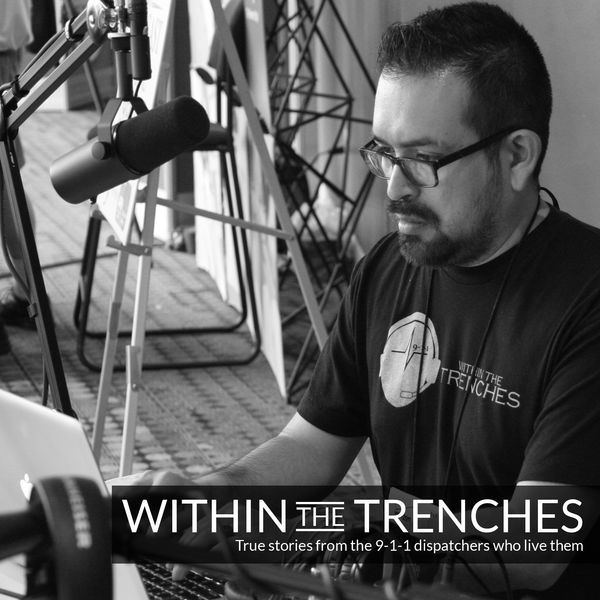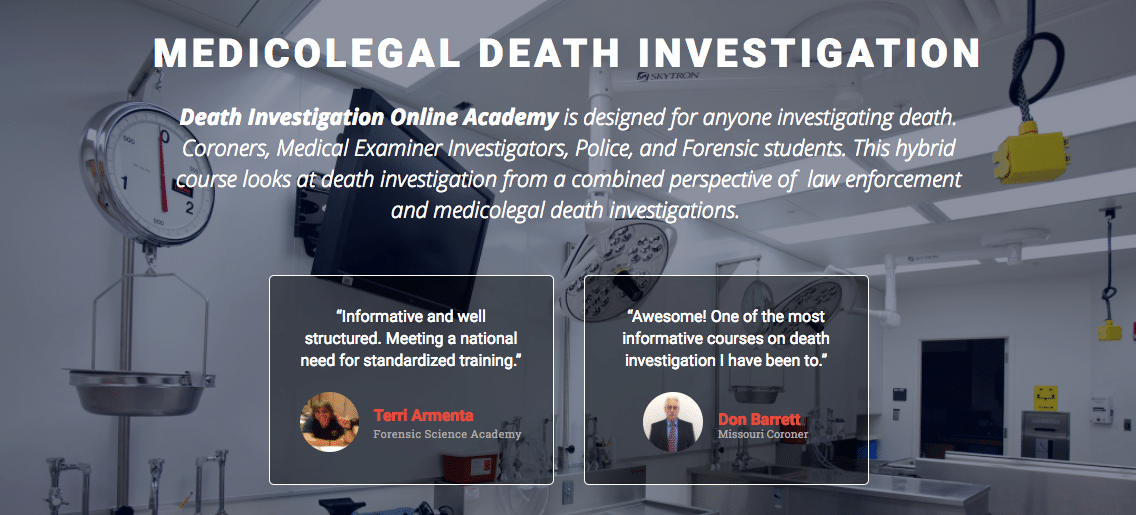 911 Call Takers and Dispatchers are often the first investigators involved in death calls
911 Call Takers and Dispatchers are often the first investigators involved in death calls
911 emergency dispatchers often are the first people contacted when emergency assistance is needed. They’re responsible for determining the nature of the calls they receive, as well as the location of the callers. They also are responsible for monitoring the location of emergency service personnel in their assigned territory. Using this information, 911 emergency dispatchers direct the appropriate type and number of emergency service units to emergency scenes. 911 emergency dispatchers must maintain communication with the dispatched units to monitor their response, in addition to maintaining communication with callers to monitor emergency situations and give first-aid instructions if necessary.
Dispatcher Stress
A May 2012 study, conducted by researchers at Northern Illinois University (NIU), linking on-the-job training exposure to trauma, placed dispatchers at risk for developing symptoms of post-traumatic stress disorder (PTSD).
The study was published in the Journal of Traumatic Stress.
“We found that dispatchers report significant emotional distress related to handling duty-related calls, and this type of distress is associated with increased risk for developing PTSD or PTSD symptoms,” said NIU Psychology Professor Michelle Lilly, one of the authors of the study.
Iam911
The #IAM911 movement is an effort to assist in the reclassification of public safety telecommunicators from “clerical” to “protective.” But its much more than that. It’s a movement that brings light to the job of 911 call takers and dispatchers who were previously all but forgotten about.
911 centers are the first line of communication with and for emergency service workers and their fields. If not for the central hub of communications and good direction from a dispatch ‘traffic cop’, the rest of us could not do our jobs as efficiently if at all in some cases.
 Episode Guest Ricardo Matinez
Episode Guest Ricardo Matinez
Ricardo Martinez II is a creative individual who is using his skills in writing, design, and podcasting to tell the stories of those he works with. For 13 years he has answered the call of a 9-1-1 dispatcher and recently accepted a new position with INdigital telecom as a 9-1-1 systems trainer and designer. Throughout his years in dispatch, he was able to go to school where he received an Associate’s in web development through Baker College, a Bachelor’s in graphic design through Full Sail University as well as a Master’s in new media journalism in March of 2013.
Before starting his Master’s program he launched Jabber Log, a blog about current events and his life stories. His personal blog posts became a hit with his audience and one such post even appeared on WordPress.com’s “Freshly Pressed” section on their main page. From there, his blog opened doors that included promotions for businesses, artists, and musicians. Once he started his Master’s program he began doing multimedia stories that can be found on his YouTube channel. Through this program he discovered podcasting. It spawned a series that tells the stories of those in the field of emergency services.
He then created a podcast version of a segment on his blog called Within the Trenches, a section of writing based on his experience as a 9-1-1 dispatcher. He launched a Kickstarter campaign to raise $1,500 for the equipment needed for a show that would feature the stories of 9-1-1 dispatchers. The campaign was funded and can now be found at www.thejabberlog.com. His goal is to tell the story of everyone he meets.
“I believe that everyone has a story to tell. I want to do everything I can to bring that story to life.”
– Ricardo
Important Links
 Free 12 week email course. Receive a new training and video to your inbox every week for 12 weeks. This is real training and will give in detailed actionable steps to becoming a better investigator. Sign up today at:
Free 12 week email course. Receive a new training and video to your inbox every week for 12 weeks. This is real training and will give in detailed actionable steps to becoming a better investigator. Sign up today at:
 Medicolegal Death Investigation – Online Academy
Medicolegal Death Investigation – Online Academy

The Death Investigation Training Academy was founded to play an integral role in the death investigation community. The need for quality accredited training is in short supply and high demand. Using a combination of classroom training, live on site scenario exercises, and web-based training, the Death Investigation Training Academy is filling the need of 21st-century investigators.
coroner,police training, darren dake,sheriff,deputy,coroner association,murder scenes,auto fatalities,csi,first responders,autoerotic fatalities,become a coroner,forensic science crime scene investigation,forensic science crime,scene investigator,forensic training,forensics training,how to be a crime scene investigator,how to become a death investigator,how to become a medical examiner,how to become a medical examiner investigator,medical examiner investigator training,medical investigator training,medicolegal death,medicolegal death investigator training,murder scenes,pictures of murder scenes,murder,real murder crime scenes,traffic deaths,traffic fatalities,what does it take to be a coroner,what does it take to be a criminal investigator,firefighter,fire training,firefighter training,autoerotic fatalities,become a coroner,coroner information,crime scene clean up training,crime scene cleaning training,crime scene cleanup training,crime scene investigation,crime scene investigation classes,crime scene investigator courses,crime scene investigator school,crime scene jobs,crime scene photography,crime scene photography training,crime scene technician,crime scene technician training,crime scene training,criminal investigation,criminal investigator,criminal justice,criminal justice forensic science,criminal justice forensics,criminal scene investigation,death crime scenes,death investigation training,death investigator training,death investigators,forensic death investigator,forensic investigator,forensic photography, crime scene clean up,crime scene bio-hazard, using plants in criminal investigation,forensic botany,dr.jane bock,death investigator magazine,dr judy melinek,badge of life,american college of forensic examiners,acfei,american board of medicolegal death investigators,abmdi,matthew lunn,underwater crime scene,mike berry,online learning,lopa




